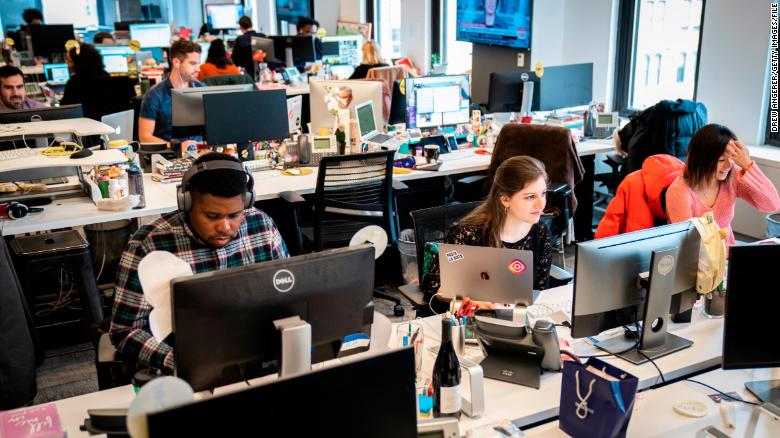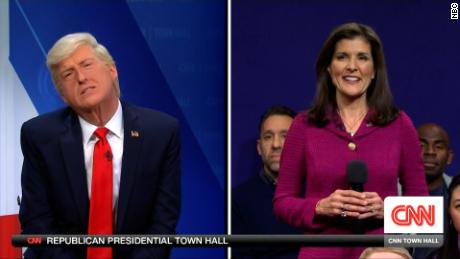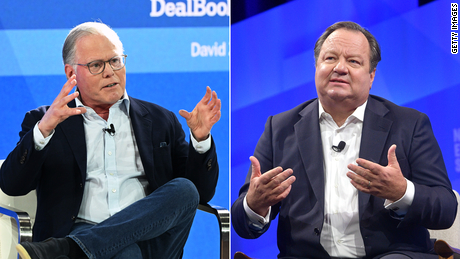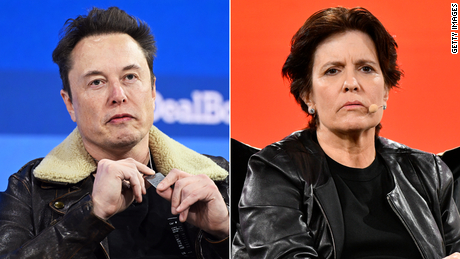New York (CNN Business)BuzzFeed laid off dozens of employees on Friday inside its prized news division as the media organization restructures to grapple with the tumultuous digital news landscape.
"It's a slaughter," one employee, who was not authorized to speak publicly, told CNN Business.
The entire national desk, which produced some of BuzzFeed News' most illustrious feature reporting, was cut. The health desk was also slashed, and the national security desk was disbanded. The website's LGBT desk, an area of coverage in which BuzzFeed News had invested significant resources, was left with only one staffer. The entertainment team also suffered some cuts. Internationally, BuzzFeed News' offices in Spain were closed.
Some of BuzzFeed News' longest serving employees were affected. John Stanton, a senior national correspondent and the former BuzzFeed News DC bureau chief, was laid off. Michael Rusch, the website's global news curation director who helped build BuzzFeed News' social accounts into powerhouses, said he too was let go.
In total, 43 people were let go on Friday from BuzzFeed News, a spokesperson for the company told CNN Business. A person familiar with the layoffs said that the cuts to the newsroom had almost no impact on the politics, investigation, tech, and culture teams.
Ben Smith, the editor in chief of BuzzFeed News, said in an email to staff that it was a "hard day" and that the organization was "losing a lot of excellent colleagues."
"We'll do our best to support the people who are leaving and to help them in any way we can going forward," Smith wrote.
Moving forward, Smith said, "I'm confident that we'll continue to do distinctive work on the biggest stories, and punch above our weight."
Inside the newsroom, employees shed tears as they learned their fate, and the fate of their colleagues. In tweets, BuzzFeed News journalists described the situation as "agonizing," "heartbreaking," and "surreal."
While employees expressed their sadness, however, many also turned to Twitter to thank the outlet for the opportunities it gave them.
"After 7+ years, I've been laid off by BuzzFeed," tweeted Mike Hayes, a senior reporter at BuzzFeed News. "I'm extremely proud of the work I've done. I feel fortunate to have stood in the trenches with some of the most brilliant reporters and editors in the biz."
Jonah Peretti, BuzzFeed's chief executive and co-founder, informed employees on Wednesday evening that the company was cutting 15% of its workforce as part of a broader effort to put the company "on a firm foundation" to deal with the "evolving economics of digital platforms."
BuzzFeed employs approximately 1,450 people, meaning about 220 throughout the organization would lose their jobs. The cuts to the news division took place on Friday, but the layoffs will affect other departments and extend into next week.
BuzzFeed News was founded in 2012 and quickly grew from a small operation into a well-respected newsroom employing approximately 250 journalists in bureaus around the world. Over the years, its journalists have produced award-winning reporting, and some have been finalists for the Pulitzer Prize.
BuzzFeed was not the only media company to announce layoffs this week. Verizon announced it would cut 7% or approximately 800 jobs from its media division, which includes brands like HuffPost, AOL and Yahoo News, and Gannett slashed dozens of jobs at newspapers across the country.
In total, about 1,000 jobs have been lost in the media industry since Monday.
Each case has unique characteristics, but the root causes are the same. The layoffs come during a turbulent time in digital media, and the journalism industry as a whole.
Media companies have struggled in recent years to grapple with declining advertising revenue that has been eaten up by technological giants like Facebook and Google.
Some news organizations have also been affected by dwindling web referrals from Facebook, which altered its algorithm in 2016 to favor user-generated content after having once served as a firehose of traffic for publishers.
Additionally, as digital media companies like BuzzFeed have tried to weather the storm that is wreaking havoc on the industry, they have been under increasing pressure from venture capitalists, who have provided sizable rounds of funding, to deliver results.




















